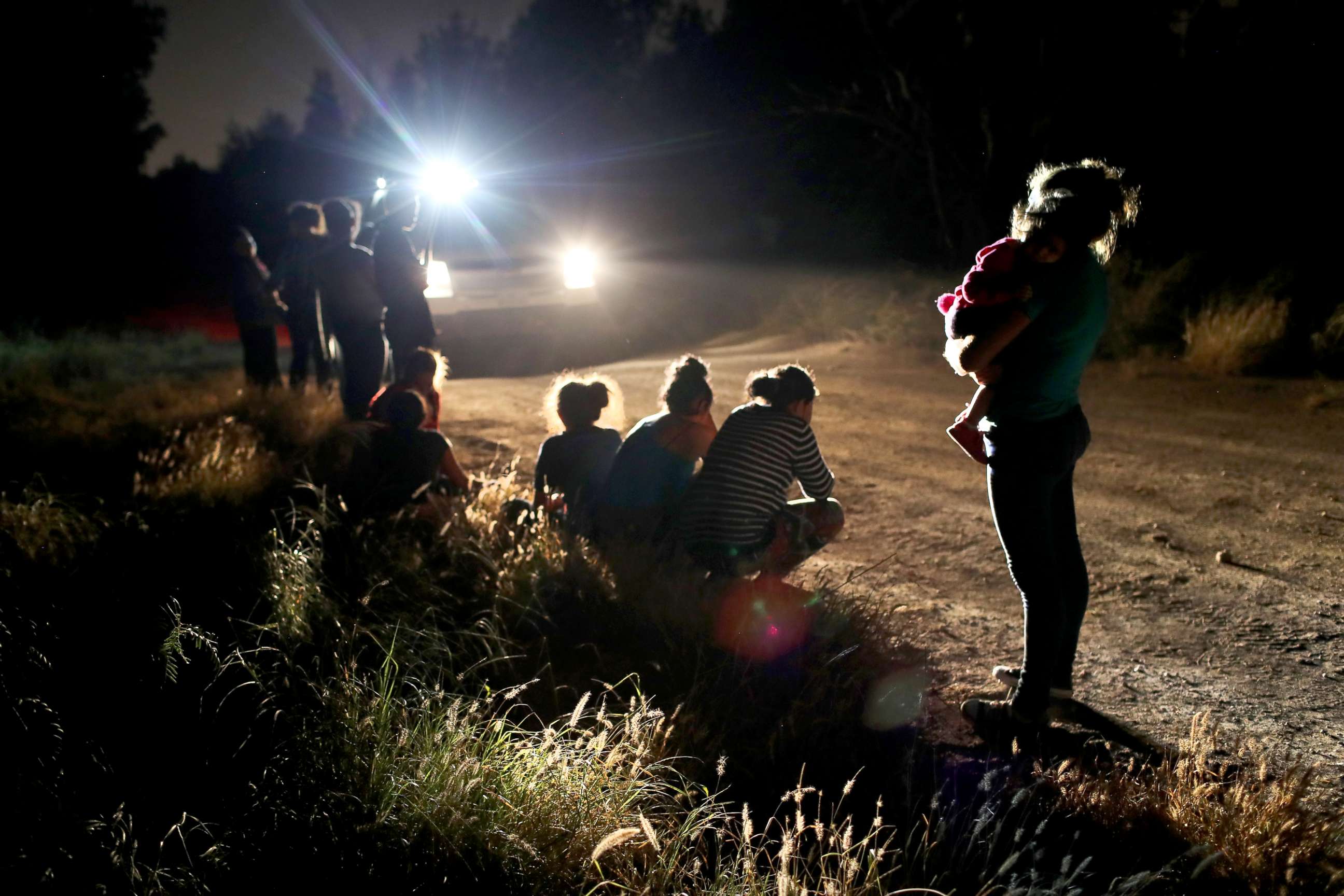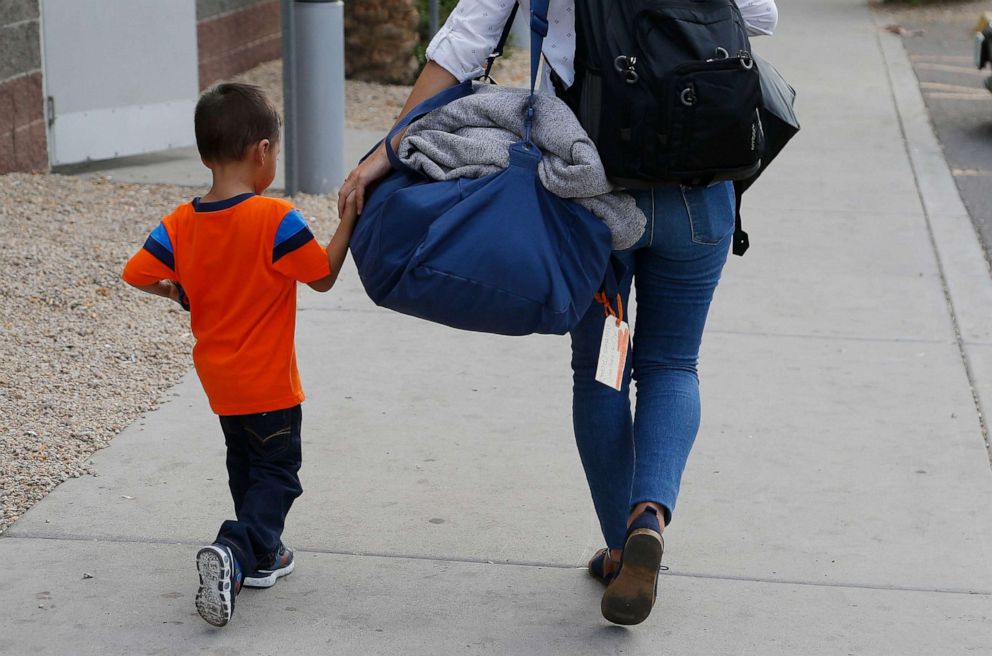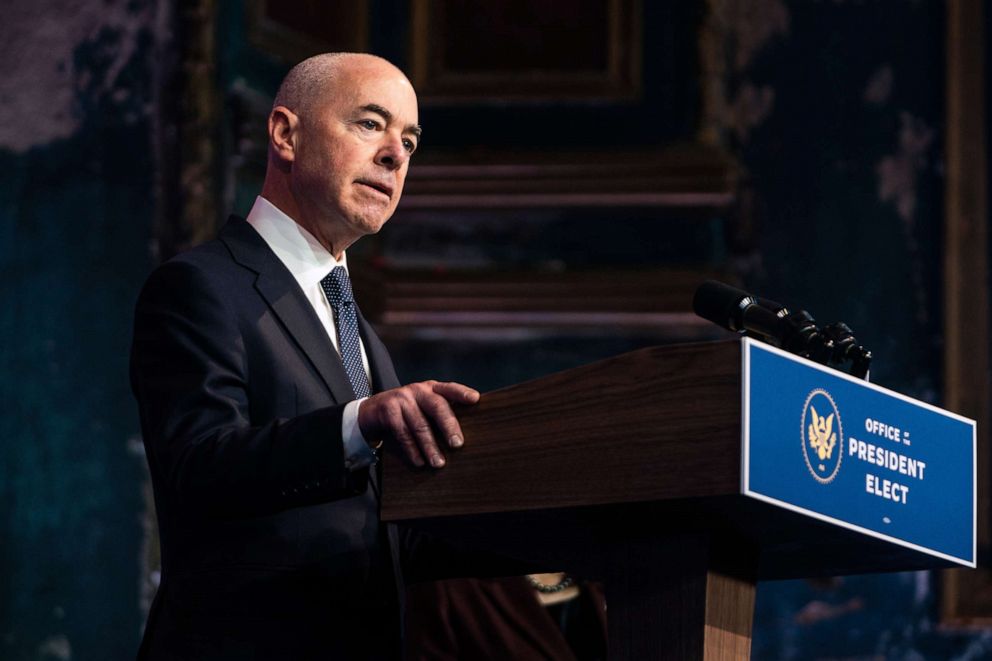Biden creating task force to reunite families separated at the border
He is working to roll back many of his predecessor's restrictive policies.
President Joe Biden signed three executive orders on Tuesday aimed at reforming the U.S. immigration system and rolling back his predecessor's policies, including creating a task force aimed at reuniting children who American authorities separated from their families on the border.
He said, "I’m not making new law, I’m eliminating bad policy."
Chaired by the homeland security secretary, the task force will work to identify all families broken apart under the various forms of the Trump administration's "zero-tolerance policy," which separated children from relatives at the U.S. border, even before it became an official policy, a senior Biden administration official said.
The task force, which will be vice-chaired by the secretaries of state and health and human services, would manage family reunifications on a case-by-case basis, making different immigration benefit determinations for different families, the official said.
"There's no one solution fits all," the official said. "It will be an individual assessment."

Biden also signed another order that directs his administration to address the root causes of migration from Central America and have the secretary of homeland security review the Trump administration's Migrant Protection Protocols program, under which asylum seekers in the United States are sent to Mexico to wait for court appearances north of the border.
That executive order and a third one kick off a review of more restrictive immigration policies enacted by the Trump administration and "restore the U.S. asylum system," including by streamlining the naturalization process and putting the White House at the center of "coordinating the federal government's strategy to promote immigrant integration and inclusion," the White House said.
The Trump administration's aggressive immigration agenda wasn't limited to the southern border and neither were Biden's planned policy reversals.

The third order calls for a review of the "public charge" rule former President Donald Trump tried to use to limit poor immigrants from coming to the United States legally, according to the White House. The rule prevents those using public benefits from receiving green cards; the Trump administration expanded the list of public entitlement programs that qualified, to include housing benefits and food stamps.
As a presidential candidate, Biden pledged to reverse many of his predecessor's restrictive immigration policies. On his first day in office, he ended Trump's ban on migration from a number of Muslim-majority and African countries.
The rollout of these immigration actions had been pushed back when the Senate delayed a confirmation vote for Biden's pick for homeland security secretary, Alejandro Mayorkas, the White House said last week. The Senate confirmed his nomination Tuesday with a vote of 56-43 and Mayorkas was with Biden and Vice President Kamala Harris in the Oval Office when the president signed the three executive orders.
The nonprofit organization leading the effort to reunite more than 500 migrant children still separated for their parents, Justice in Motion, told ABC News last month that such a task force was desperately needed to cut through bureaucratic tape and scale up the resources involved in the search.
The group's director, Cathleen Caron, said it was "the first step toward healing these families" that will be "forever harmed" by the "zero-tolerance" policy.
The search for parents has been a painstaking process, hampered by hurricanes, the COVID-19 pandemic and bureaucracy. Many parents are back in Central America while their children remain in the United States.
"It's pretty shocking that two and a half years later, after this policy was stopped, that the government is still handing over information and we're still searching for some of these families," Caron said.
Over 4,000 families were separated under Trump's family separation policy, she said.
"The hope is that we find all these parents and that these families are reunified," Caron said.
Justice In Motion, the American Civil Liberties Union and other advocates have been pressing Biden to extend legal status to the affected families and have the reunifications happen on U.S. soil.
"Hopefully the executive order does not limit the task force mandate to provide full relief for all the families, but beyond that, it's critical that the task force take immediate action," Lee Gelernt, the ACLU's top lawyer on its family reunification lawsuit, told ABC News. "We are not oblivious to the scope of what the Biden administration has inherited, but where little children are involved, we need the new administration to act concretely and immediately to avoid further harm."
"We're just at the beginning of this stage," Rep. Raul Ruiz, D-Calif., the chairman of the Congressional Hispanic Caucus, said of concerns about the progress of family reunifications.
"I'm looking forward to more specifics on objectives, goals, timelines and methods," he said. "And also looking forward to working with them to accomplish it in a way that will bring healing to the children and families that have been essentially tortured."
Erika Andiola, chief of advocacy at the Texas-based Refugee and Immigrant Center for Education and Legal Services (RAICES), suggested the rollout of the task force might be designed to avoid legal action from anti-immigration organizations and state attorneys general, which could cause delays in the policy rollout.
"My understanding of the way in which they are doing a lot of these executive orders, they are kind of keeping in mind the legal challenges they they would get from the other side, and so that's -- I would hope that's the reason why what we have seen so far is so limited. We are hoping there is a lot more to the task force that we're perhaps not seeing right now," Andiola said.
Still, Andiola said the review of MPP, or the so-called "Return to Mexico" policy, was a missed opportunity for the Biden administration to offer concrete action.
"We wanted to see it gone today," Andiola told ABC News. "There are challenges to undo a lot of what Trump has done, but we are pushing so that the process is a lot faster for them to undo all of this."
Tuesday's actions do not address all of Biden's immigration-related promises, such as those related to the refugee system, but immigrant advocates have largely praised his approach so far.
"Donald Trump spent four years attempting to dismantle America's legal immigration system," Doug Rand, who runs Boundless Immigration, a legal services provider, said. "Today, President Biden is committing the whole executive branch to building it back."

Biden has also put forward a legislative proposal, which carves out a pathway to citizenship for 11 million undocumented immigrants already living in the country. It includes funding for border security, but without the hardline legal measures used to immediately remove unauthorized migrants from the Southwest.
Immigration restrictionists, including groups like Numbers USA, have criticized the Biden administration for pursuing what they call open-borders policies.
"I think the Biden administration is less enthusiastic about enforcement and trying to deter future immigration and they're showing it through their actions," Numbers USA Deputy Director Chris Chmielenski said.
ABC News Senior Washington Reporter Devin Dwyer, Sarah Kolinovsky and Benjamin Siegel contributed to this report.




